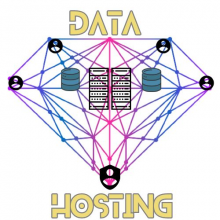Top Companies providing Disaster Recovery services:
More than 327 verified IT companies specialize in providing disaster recovery services. These companies have expertise in creating and implementing strategies to protect your data and IT infrastructure. Well-known IT companies offering disaster recovery services include IBM, Dell Technologies, and Hewlett Packard Enterprise (HPE).
Handpicked companies • No obligation to hire • 100% risk-free
Use the advanced filter to find companies near you or refine the results Last updated in: December, 2025
We solve every IT problem. Guaranteed 👌
Streamlining Your Cloud Infrastructure Unlock Maximum Cloud Performance with Streamlined Infrastructure Solutions
Oc2Tech IT Solutions provides IT Solutions including, Cybersecurity, MSP, Internet, Email, VoIP, Support on IT Networks, Backup, Pastel, IQ Retail.
Empowering Business through technology.
Web hosting, domains and SSL certificates.
Viacloud is a leading telecommunications operator offering international voice, data and value-added services to Businesses and Individuals.
Dedicated to delivering comprehensive IT & Systems Support, Managed Services & Digital Solutions to businesses & charities across the UK 💻
The IT staffing company
SeqOps is a cybersecurity firm offering advanced security solutions such as vulnerability scanning, penetration testing, cloud and server security.
Connectia Hub offers a modern and inspiring coworking space designed to foster collaboration and creativity.
Established in 2010, Vinova is a passion-driven and award-winning development company for mobile, web, and enterprise applications.
A Better Logic is a leading website designer in Varanasi, offering expert web development, profile creation, and website designer services.
Cloud Web Hosting And Server Management Services in India.
Syntax Communications, where we redefine the landscape of corporate communications and strategic public relations for the new age of PR & Marketing.
Services:
We are an African Technology company that empowers organizations by focusing on the needs of the people they serve, enabling our customers to deliver.
IubiSoft is a company that provides information technology consulting and software development services. Having started as a small AI product company,
Trusted software develoment company with over a decade of experience.
Glajumedia SAC, IT & Outsourcing firm delivering top-notch solutions to enhance your brand.
DataHosting is selling cloud solutions located in Slovakia in Bratislava city we have redudancy Raidz1 so your data is safe
Empowering Business Growth Through Expert Managed Services, we Safeguard your Business
We simplify your life, so you can focus on what matters most. Wezatech, Life, Simplified.
Westech - IT Support Company that offers a selection of on-site & off-site or outsourced IT Support & Maintenance plans. Software, Hardware & more
The #1 IT Companythat provide various services like app development , website development , custom softaware development at a very affordable price.
Committed to delivering scalable, high-performance software solutions. Specializing in both web and mobile application development.
Companies on the map offering Disaster Recovery services
What is Disaster Recovery and what are its benefits for your projects?
Disaster recovery services are like a safety net for your business's data and operations. They help you prepare for unexpected events like natural disasters or cyberattacks, ensuring that you can quickly recover and continue your business even in challenging circumstances.
More than 327 verified IT companies specialize in providing disaster recovery services. These companies have expertise in creating and implementing strategies to protect your data and IT infrastructure. Well-known IT companies offering disaster recovery services include IBM, Dell Technologies, and Hewlett Packard Enterprise (HPE).
Disaster recovery service providers use a range of tools and technologies to safeguard data and ensure business continuity. These include backup and recovery software, cloud storage solutions, virtualization technologies, and monitoring systems. Popular cloud platforms like Amazon Web Services (AWS) and Microsoft Azure also play a crucial role in disaster recovery.
Disaster recovery services are typically included in a suite of services that also address business continuity and risk management. Other related services may include:
-
Business Continuity Planning: Developing comprehensive strategies to keep your business running during disruptions.
-
Cybersecurity Services: Protecting against cyber threats and data breaches, which are often a cause of disasters.
-
Risk Assessment: Identifying vulnerabilities and potential threats to your business.
-
Emergency Response Planning: Preparing for immediate actions in the event of a disaster.
-
Data Protection Services: Implementing data encryption, access controls, and data loss prevention measures.
Selecting the right IT company for disaster recovery services requires evaluating their experience, the comprehensiveness of their disaster recovery solutions, and their responsiveness in case of an emergency. Look for providers who offer tailored disaster recovery plans that align with your specific business needs and recovery time objectives (RTOs).
Disaster recovery service providers are essential for various projects and scenarios, including:
-
Data Centers: Ensuring the continuity of critical data center operations.
-
E-commerce Websites: Protecting online businesses from downtime due to technical issues or cyberattacks.
-
Healthcare Systems: Safeguarding patient records and medical systems to ensure uninterrupted care.
-
Financial Institutions: Meeting regulatory requirements for data protection and business continuity.
-
Manufacturing Plants: Minimizing production disruptions caused by equipment failures or supply chain interruptions.
Disaster recovery services are crucial for companies of all sizes and industries, including:
-
Small Businesses: Protecting essential data and ensuring minimal downtime.
-
Enterprises: Managing complex IT environments and maintaining regulatory compliance.
-
Healthcare Providers: Safeguarding patient records and critical medical systems.
-
Financial Institutions: Ensuring uninterrupted banking and financial services.
-
Government Organizations: Maintaining public services and data integrity during emergencies.
Disaster recovery is not a one-size-fits-all solution. It's essential to conduct a risk assessment and work with a disaster recovery service provider to develop a tailored plan that matches your business's specific needs and budget. Regular testing and updates of your disaster recovery plan are also crucial to ensure it remains effective as your business evolves.























